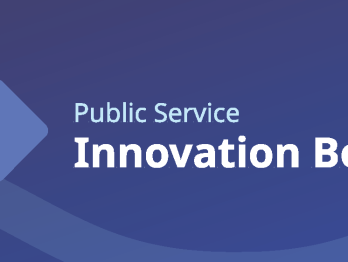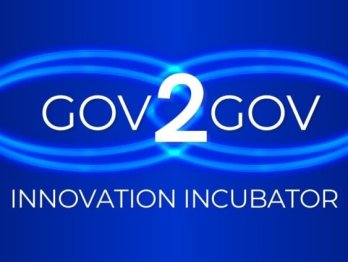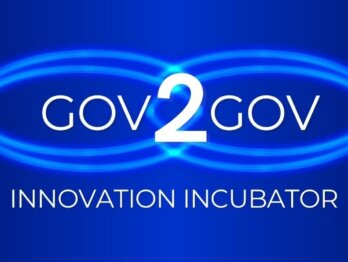Creating meaningful participation and building trust: The journey of Brasil Participativo

This blog is part of a series on the experiences and results of the government teams which participated as “challenge owners” in the OECD Gov2Gov Innovation Incubator. They were prepared by the teams themselves in order to offer first-hand accounts of their expectations, learnings, pain points, and overall assessment of the initiative. Written by Mayara Soares Faria, International Advisor; Ricardo Poppi, Product Manager; & Carla de Paiva Bezerra, Director of Digital Participation and Network Communication, National Secretariat for Social Participation, General Secretariat of the Presidency of the Republic of Brazil.
We have heard it before and will likely hear it again: democracy is facing serious challenges. Around the world, levels of trust in governments and institutions are low. To overcome this, one of the most telling findings, highlighted in the latest OECD Survey on Drivers of Trust, is that people trust governments more when they feel their voices are genuinely heard.
Participation, therefore, has become a key ingredient for strengthening democracy and rebuilding trust. However, participation on its own does not guarantee trust. On the contrary, poorly designed processes can backfire, creating frustration and enhancing mistrust. Meaningful participation requires careful design, transparency, and a real link between what citizens ask for and what governments do.
The strategic vision behind Brasil Participativo
It was to address this challenge that Brazil placed social participation at the heart of the government’s agenda. Within the General Secretariat of the Presidency, the National Secretariat of Social Participation was entrusted with a bold mission: to make policymaking more inclusive, reflective of the country’s regional and social diversity, and more effective by grounding it in the reality of each territory. To achieve this, a federal strategy of social participation was designed to foster dialogue between civil society and government, reduce barriers to participation and empower citizens. This required a concerted effort to rebuild the participatory structures that had been dismantled in previous years.
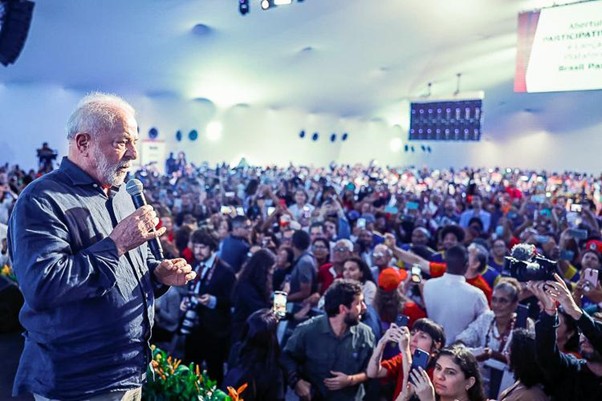
A cornerstone of this federal strategy was the launch of Brasil Participativo, a digital platform, based on the digital common Decidim, serving as the main channel for dialogue between civil society and the federal government. It allows users to access all government participation processes and information in one place, while also expanding the reach and impact of these initiatives through digital technology. Its first use was historic: over 1.5 million citizens contributed to the Pluriannual Government Plan, which defines strategic goals and milestones for the entire mandate. Since then, the platform has hosted participation processes on key policy areas, including the development of the national plans for climate and culture, and has expanded participation in national conferences addressing critical issues, such as racism and gender equality.

Making digital participation (truly) for all: the challenge at hand
As the number of participants continues to grow, our team noticed a significant challenge. While the platform allows any Brazilian citizen (and also foreigners, just check out our COP30 participation opportunities!) to take part in participation processes, engagement from historically marginalized groups remains limited. These citizens tend to participate in lower-barrier activities such as voting or responding to polls, but rarely submit or comment on proposals. As a result, the diversity of contributions are not as they could be. Addressing this gap is crucial for our mission of building inclusive policies and ensuring all voices are truly heard.
It was in response to this challenge that we embraced the opportunity to participate in the OECD Gov2Gov Innovation Incubator, as it offered a unique promise: a space to go beyond theories and best practices and experiment with concrete solutions, learn from peers around the world, and test new approaches.
London, New York, and Brasilia: Cocreation and experimentation across borders
As a flagship innovation program, the incubator provided access to a flexible methodology and two “solution providers”: the cities of London and New York. London demonstrated how their Talk London platform uses a data-driven, audience-targeted approach to boost engagement, emphasizing the importance of showing the impact of participation. New York highlighted the value of collaborating with community leaders and building local partnerships to amplify marginalized voices. Across all exchanges, one key lesson stood out: trust is not only the result of participation, it is also the prerequisite. If citizens do not believe their contributions will lead to real impact, even the best-designed tools and processes will struggle to engage them deeply.
With the support of these peers and OECD mentors, we designed and tested a prototype communication strategy aimed at re-engaging users who had only minimally participated in one of our major processes. We identified 10,691 such users and sent them personalized messages emphasizing the concrete impact of their past participation, while inviting them to contribute to other processes. Of these 10,691 users, 15.6% opened the message and around 6% of those who opened clicked through to the platform.
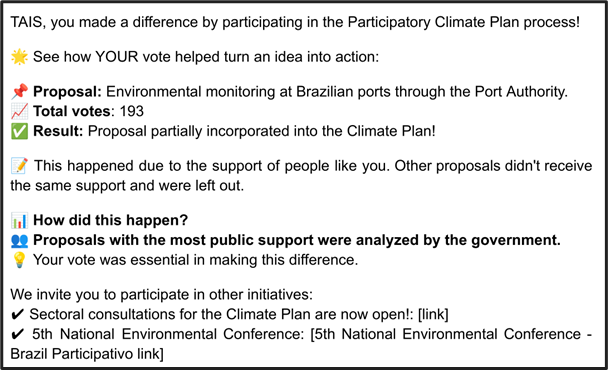
The results were modest, but they offered valuable insights. For instance, it became clear that timing is critical in a digital participation process. While sending a message at the end of a process is crucial, maintaining engagement also requires consistent, personalized, and timely follow-ups.
Yet the most significant outcome went beyond the numbers. The incubator provided the clarity and confidence needed to embed a more strategic approach to communication into our work. It helped us move away from seeing public communication as an afterthought and toward treating it as a central tool for engaging citizens and building trust.
The experience also created space for new international collaboration. Innovating in the public sector can feel lonely, and joining the incubator reminded us how governments worldwide are struggling with similar challenges, and how a network of peers can provide fresh perspectives and clarity.
A promising path toward meaningful participation
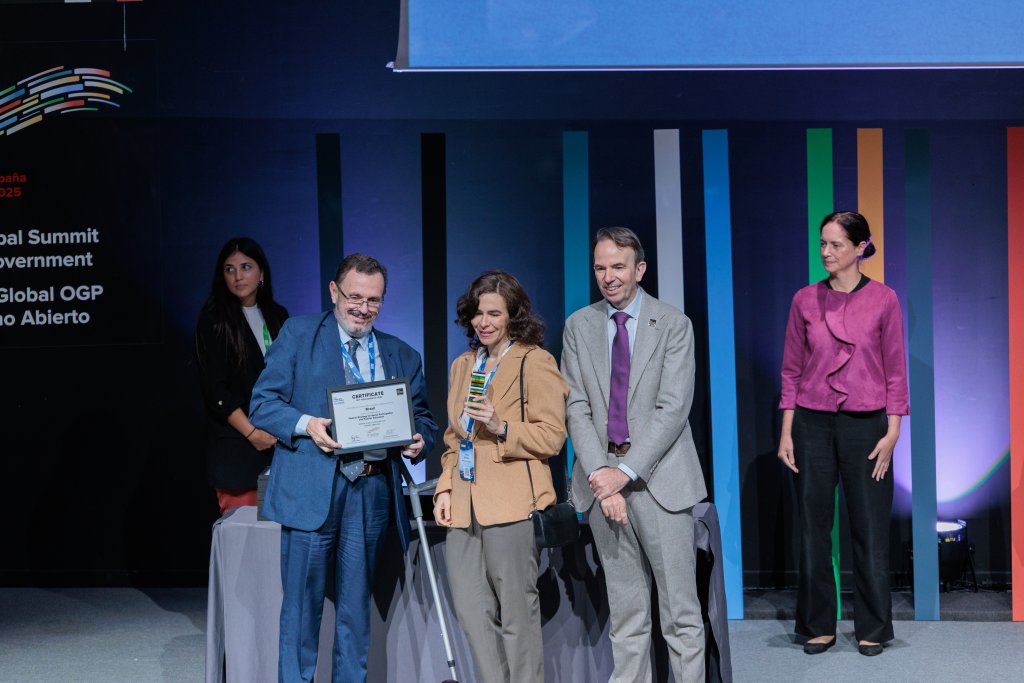
Almost 10 months later, Brasil Participativo continues to grow, hand-in-hand with other programs within the federal strategy for social participation, working to reduce barriers and foster more inclusive and meaningful participation. Since then, the project has earned national and international recognition, both for its contributions to social participation and for its innovative digital government tools. The lessons from the OECD Gov2Gov Innovation Incubator have strengthened our ability to move in that direction. We are confident that it is through similar initiatives that we shall collectively find innovative ways to strengthen democracy and rebuild trust.
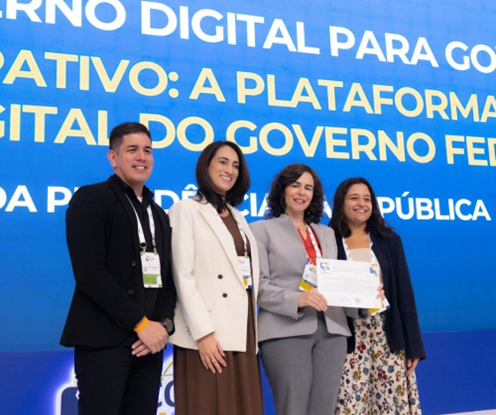
Do you want to know more or get in touch with the team? Feel free to write directly to [email protected]
Brasil Participativo won 2nd place in the ABEP-TIC Digital Government Excellence Award, for the best open government digital solution, at Brazil’s 52nd National Seminar on ICT for Public Management (SECOP) in Brasília.
About Ecolab
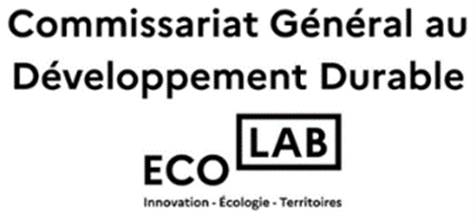
Ecolab is an innovation laboratory located within the General Commissariat for Sustainable Development (CGDD), a cross-departmental direction of the Ministry in charge of ecological transition enlightens and feeds, through the production of data and analyses, the action of the Ministry.
Among others, Ecolab supports and incubates projects using data, works on the use of frugal AI for the ecological transition, and is responsible for animating the greentech ecosystem, which includes detecting and supporting start-ups and SMEs with innovative solutions that have the potential of accelerating ecological transition.
The Green Data for Health (GD4H) initiative initiated by Ecolab has been selected as a field of experimentation. In the context of the platform, the challenge was to enhance the engagement of non-data experts. In particular, the objective was to make the platform better at collecting and handling uses obtained thanks to the source data referenced in the online catalogue. This goal implied working on raising awareness of the usefulness of data among public actors who are not familiar with data.
About Green Data for Health
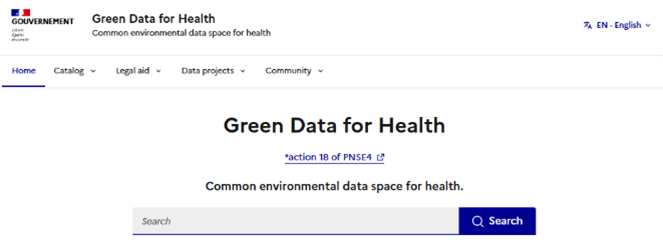
The Green Data for Health (GD4H) is an initiative built around an online platform and aims at fostering the use of data to better understand the impact of environmental factors on health (through a data catalog, some legal tools, some projects using data).
Benefits of sharing knowledge and experience with international solution providers
Two solution providers have been identified to explore effective strategies answering the question raised : the London Office of Technology and Innovation (LOTI) and Finland’s VATT.
The collaborative aspect of the programme was key, allowing the sharing of methodological resources, experiences, and new ideas. For instance, LOTI’s expertise on digital inclusion allowed to think “out of the box” by questioning the extent to which some insights could be connected with regard to the question raised. In terms of types of solutions to consider, Finland’s Data Room suggested a complementary perspective to test that allowed us to enhance the prototyping exercise.
Better knowing end users, imagining solutions, and refining hypotheses
Among the results generated, the incubation process allowed us to better understand the target local actors which were not familiar with data, and to make emerge different solution scenarios aiming at fostering engagement on the GD4H platform. The incubator also enabled us to explore different ways to engage such actors, as well as to prototype and run some first user tests. All this allowed us to tailor our hypotheses. Subsequent tests could then refine them iteratively to generate fresh insights.
Participating in the incubator as a key asset to foster public sector innovation
Beyond the already mentioned benefits, working with short run cycles and advancing quickly on an innovation challenge with a structured process allowed to accelerate our reflections.
While Ecolab projects are guided by service design and user-centered approaches, the incubator played a crucial role in deepening our understanding of emerging target audiences. The programme helped us question and clarify the different types of actors implicit in the challenge and to deepen their underlying interests and motivations. For instance, distinguishing between local administrative actors and elected representatives was essential to refine the strategic levers that need to be pulled for specific solutions to be tested.
Encouraging out-of-the-box thinking and embracing new perspectives, the participation in such an incubation process also enabled us to gain fresh insights, step back for broader reflection, and forge new connections between innovative ideas and existing actions. For example, we made a connection with the “Data Bouquets” feature that was being developed on the platform, given the similarities in terms of objectives. “Data Bouquets” consist in a step-by-step user journey designed to spark interest in data, by first considering data potential applications based on the users’ needs, and by identifying the most relevant datasets accordingly.
Do you want to know more or get in touch with the team? Feel free to write directly to [email protected]
This project and blog are funded by the European Union. Its contents are the sole responsibility of the OECD and do not necessarily reflect the views of the European Union.


